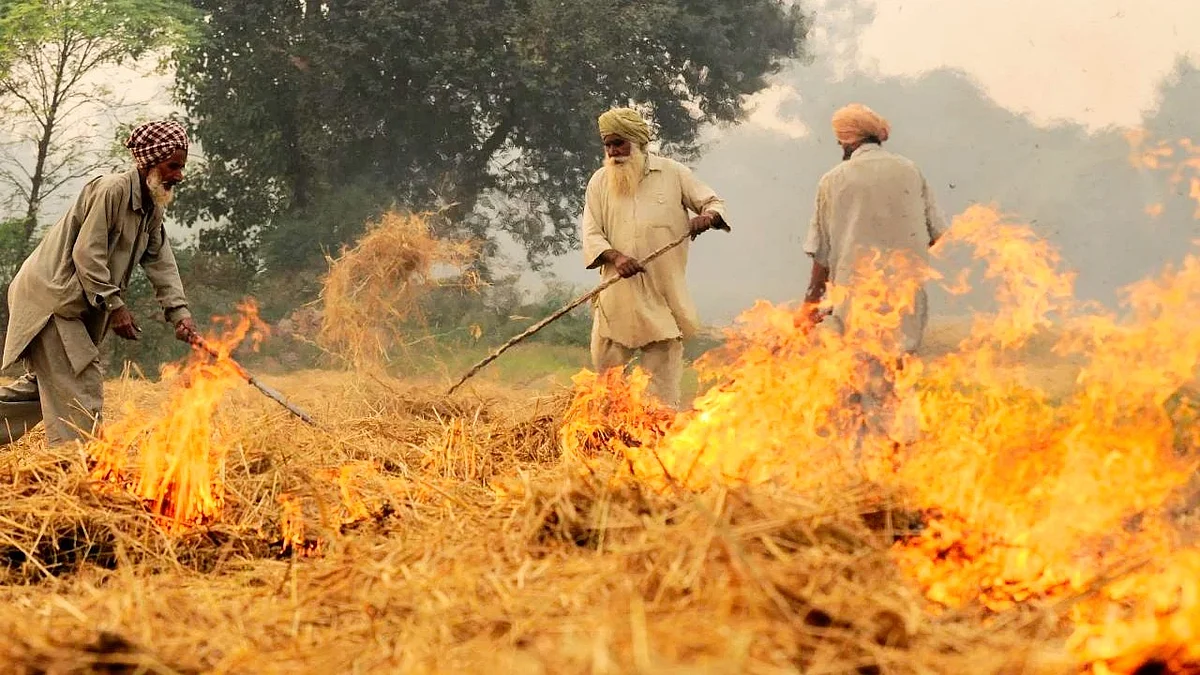SC presses Punjab on stubble burning, says arrests may send 'stern message'
Bench dissatisfied with lack of stringent measures by government to check stubble burning in northern India

Concerned over the anticipated spike in pollution levels in North India in winter, the Supreme Court asked the Punjab government on Wednesday why some errant farmers should not be arrested for burning crop stubble, a key contributor to air pollution, to send across a stern message.
“You take a call, otherwise we will issue a mandamus,” a bench comprising Chief Justice of India B.R. Gavai and Justice K. Vinod Chandran said while making strong observations on the issue.
The bench was hearing a suo motu plea related to filling vacancies in the state pollution control boards of Uttar Pradesh, Haryana, Rajasthan and Punjab.
The Court asked these states, the Commission for Air Quality Management (CAQM) and the Central Pollution Control Board (CPCB) to fill vacancies within three months.
As the proceedings progressed, the CJI asked senior advocate Rahul Mehra, who represented the Aam Aadmi Party (AAP) government in Punjab in court, why errant farmers should not be arrested and penalised for stubble burning.
“Farmers are special and we are eating because of them, but it does not mean that we cannot protect the environment. Why don't you think of some penalty provisions? If some people are behind bars, it will send the correct message. Why don't you think of some penalty provisions for the agriculturists? If you have a real intention of protecting the environment, then why shy away?” the CJI asked. “I had read in newspapers that stubble can also be used as biofuel. We cannot make this a five‑yearly exercise...”
Not enough being done
The bench expressed dissatisfaction over the lack of stringent measures put in place by the Punjab government to check stubble burning, a prevalent practice among farmers in Punjab, Haryana, western Uttar Pradesh and Delhi to quickly clear their fields for the next sowing cycle.
At the outset, the CJI said stubble, instead of being burnt, can be re‑purposed as biofuel and insisted that the state must consider stricter punitive provisions if it is genuinely committed to environmental protection.
Mehra said the Punjab government has already taken several steps and that the pollution level has gradually come down. “It came down last year and will go further down now. In three years, a lot has been achieved and much more will be achieved this year,” he said.
The lawyer said the number of stubble‑burning incidents has gone down from 77,000 to 10,000 in recent years.
He said arresting small farmers, who till around one hectare of land, could disproportionately impact them and if they are arrested, their dependents will suffer too. Asked under which law the practice of stubble burning is prohibited, a lawyer pointed to the Environment Protection Act (EPA). The Court, however, noted that the criminal prosecution provisions under the law have been withdrawn.
“Why was it withdrawn? Having people behind bars will send the right message,” the CJI said.
The bench was told that the EPA does not prescribe penalties and rather the CAQM Act provides for action against erring officials.
Senior advocate and amicus curiae Aparajita Singh said despite subsidies, equipment and repeated orders of the apex court since 2018, the ground situation has not improved substantially.
“Farmers have even reported that they are asked to burn stubble when satellites do not pass over their fields. Since 2018, extensive orders have been passed by this court and yet the state only pleads helplessness,” she said.
The CJI took note of the concerns expressed by Mehra, qualified his observations and said the arrests need not be routine but may be necessary to set an example. “Not as a routine but to send a message,” the CJI said.
Additional solicitor-general Aishwarya Bhati, who appeared in the court on behalf of regulatory bodies, sought time to place updated status reports on record.
Last year, the bench had summoned the chief secretaries of Punjab and Haryana over the issue.
With PTI inputs
Follow us on: Facebook, Twitter, Google News, Instagram
Join our official telegram channel (@nationalherald) and stay updated with the latest headlines
